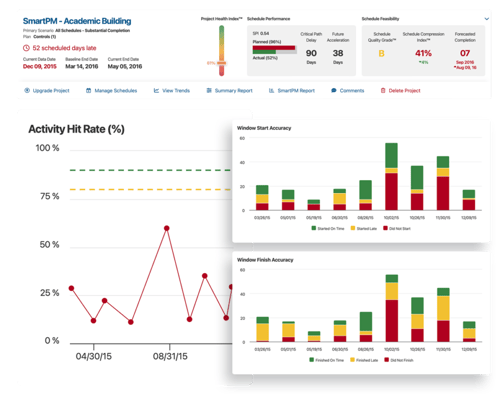Back in the year 2000, the movie “The Perfect Storm” captured the imaginations of the viewing public. It centered on a fishing boat caught in the middle of three raging weather fronts that unexpectedly collided to produce the greatest, fiercest storm in modern history. Though not quite as dramatic, construction project management finds itself in a “Perfect Storm” of its own. Several factors combine to create an unfavorable business climate. And while the industry is no stranger to challenges, it’s quite possibly the first time that all of them are so perfectly aligned.
Facing the Winds of the Construction Industry
- Labor Issues: As reported by the Associated Builders & Contractors, there’s an immediate need to recruit an additional 545,000 workers this year to fulfill the rising demand.
- Interest Rates: Chris Herbert’s, the MD of the Joint Center for Housing Studies of Harvard University, blog headline says it all. “Home Prices and Rents Remain High, as Steep Interest Rates Lock Homeowners in Place and Slow Construction.”
- Supply Chain: The construction supply chain, echoing other industries, faced severe disruptions in recent years. While there’s recovery, it’s yet to reach its pre-pandemic vibrancy.
- Economic Uncertainty: The 2023 Construction Outlook National Survey highlighted economic uncertainty as a primary concern for 74% of contractors.
- Material Costs: Since February 2020, the cost of construction materials overall has risen by a staggering 40% (though recent months have slightly declined).
Taken by themselves, each one of these market conditions presents reasonable cause for concern. Taken together, they create a negative synergy that paints a murky landscape for the construction industry in the years ahead.
Navigating Unpredictable Waters
Exacerbating the situation is uncertainty, which is the byproduct of these negative market forces. Despite the obviously discouraging climate, addressing these elements wouldn’t be quite so daunting if their effects were predictable. If these forces were more transparent and their outcomes more foreseeable, construction firms could proactively design and execute efficient strategies to navigate these challenges.
Unfortunately, this is nearly impossible, given the high level of uncertainty that these elements create. The volatility inherent in each of these areas hinders companies from effective countermeasures. The truth is, some of these areas may deteriorate even further, while others may actually improve. But whether they become better or worse, these aforementioned areas are moving targets on which it is extremely difficult to get a firm strategic grasp.
Mitigate the Impact of Market Forces with Construction Project Management
So, just how do construction companies mitigate the impact of these market forces? The answer is simple. Inject as much certainty as possible into daily operations, especially project management. Accurately tracking project costs, early identification of budget overruns, and realistic project timelines are vital.
Most importantly, producing realistic project schedules is paramount. By engaging in scheduling best practices, profit margins can be enhanced, and potential delays can be headed off before they materialize.
Accounting for Delays and Mitigating Risks
In the inevitable event of delays or discrepancies in delivery, it’s essential for companies to trace these challenges back to their origin. This ensures that the primary stakeholders, be it the construction firm or the main contractor, aren’t unfairly burdened with financial repercussions for oversights not of their making.
The Centrality of Project Scheduling in Outcomes
So, why does the project schedule carry such weight in shaping the trajectory of a construction project? It’s essentially the foundational blueprint, crafted before the first brick is laid or the initial error encountered. It’s a point of convergence for all project details. Many organizations overlook the fact that the schedule often becomes the solitary repository of comprehensive project-related data. As such, it emerges as the most potent source for devising a truly effective and efficient project timeline.
Introducing SmartPM for Smart Construction Project Management

This is where SmartPM comes into play. It is the premier platform for project schedule analysis, allowing construction companies to produce the most accurate schedules possible. In doing so, project management will improve, profit margins will be optimized, and delay tracking will be far more accurate.
Let’s be clear: market conditions are not exactly ideal for construction companies at the moment. They might be the worst they’ve been in years. Using a tool like SmartPM does not promise to overturn these adversities; it does offer a semblance of control and predictability. It serves as a strategic ally, providing a robust countermeasure against the prevalent uncertainties plaguing the construction sector.
We’re currently amidst a construction industry Perfect Storm, triggered by the combination of diverse market challenges that often seem beyond our control. SmartPM might not have the solution to dissipate this storm entirely. But it undeniably serves as a guiding light, offering the industry the shield it urgently needs.

